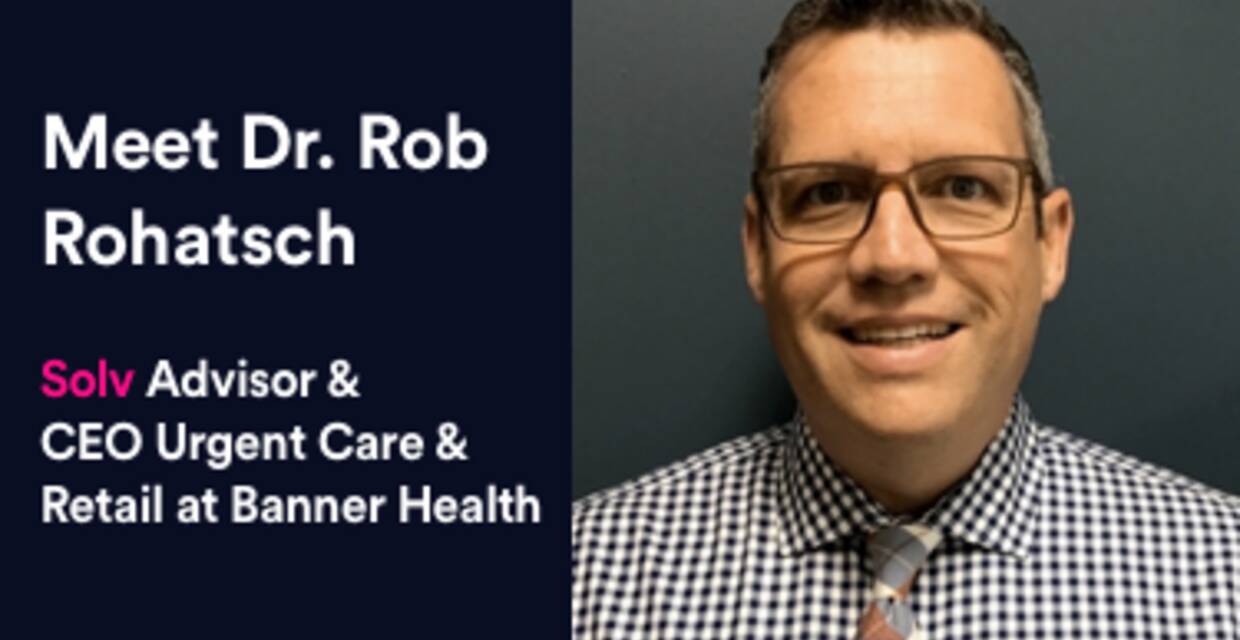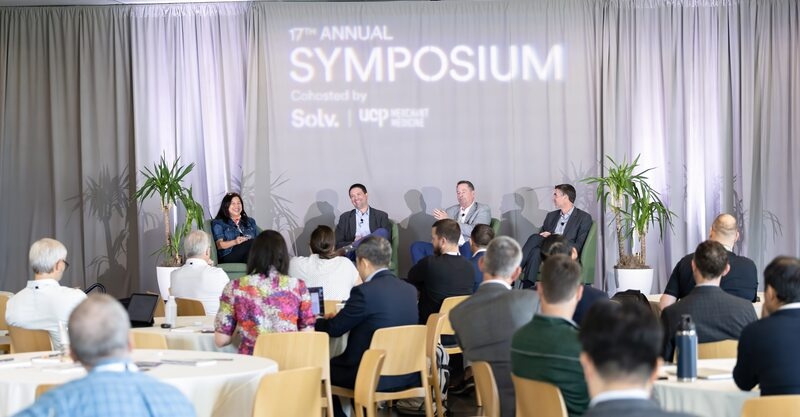We caught up with Dr. Robert Rohatsch. Dr. Rohatsch is an absolute force in the convenient care industry and has built a career around bringing a heightened consumer focus to urgent and retail medicine. As CEO of Urgent Care & Retail at Banner Health, Rohatsch built-out the C-suite, drove culture turnaround, and leads one of the fastest growing urgent care platforms in the country. As a doctor, entrepreneur, systems-maven, and Solv advisor, we sat down for a quick Q&A to get to know him even better.
We started with some warm-up questions...
Does anyone ever call you Rob Ro? Not twice.
How about R squared? I am called R cubed on occasion R. Robert Rohatsch III. (He’s actually R cubed, and the third!)
Scrubs or suits? Scrubs
I knew I was built to be an entrepreneur when: I was able to accept failure as a reasonable outcome at times.
Most extreme cost cutting activity as an early urgent care owner was: smaller roles of toilet paper. Limited squares, quota of 4 per individual.
And then we got deep...
Somebody tells you they want to be a doctor, you say: I think the process to become a trained physician is arduous if it serves as a means to an end. If you’re doing it to get there, and you think that you will only become content once you are an attending, its not worth it. If you view those 12 years of training as part of a life’s journey to take care of others and make a difference, then do it. If you think is a means to an end you’re going to be disappointed.
Somebody tells you they want to be an urgent care owner, you say: There is still time to reach through the window and grab some opportunity out there but if you don’t do it quickly you will struggle. The window of opportunity is closing but I think we are at the later innings of the game. Still time to get up to bat. If you are going to do it, my advice is to focus on differentiation.
If I could go back in time and tell myself one thing it’d be that: work-life balance is an overused term. But, you should focus on what your pie-chart looks like. Make sure there is time for a fulfilling professional life...time carved out for friends, family, loved ones...and time for yourself to reflect on what is important to you and do things for yourself. Make sure that time is divided properly. Time creep can become an issue in the work part of that equation. I believe I have done a reasonable job at managing this, but if I could go back in time, I’d tell myself to err on the side of friends, family and loved ones. Give em more than initially seems reasonable. It’s reasonable and you will realize this later.
Where do you see the convenient care industry evolving? I see the lines between urgent care, retail medicine, occupational medicine, and direct primary care contracting, starting to blur. I think it will be imperative to build your business with this in mind.
How do you keep consumer insight and patient needs top of mind in an industry with a lot of players? Differentiate yourself on service. Eliminate or reduce friction points in the consumer journey. Transparency is becoming a mandate. Patients want and deserve healthcare when and how it’s convenient for them. This sort of doctor-centered healthcare system needs to do a 180. Its all about consumer centricity. Measure it, link it to employee engagement, and drive growth relentlessly to capture market and increase enterprise value.
What advice do you have for other providers when looking for a technology partner? It will be one of the most important decisions you make and will take on relatively more importance the bigger your organization gets. The ability to understand your patients needs and respond to them by decreasing the friction points in the journey is key to any comprehensive IT solution. Look for a partner that shares the vision of a consumer-focused platform. They should be able to offer you a product that drives growth through strategic engagement of your patient. I firmly believe that the right partner, in today’s market, is the ticket to the show. I also think that picking the wrong partner is one of those mistakes that you may not recover from. Not having a laser-like consumer focus is an expensive lesson to learn the hard way.
Thank you, Rob!



